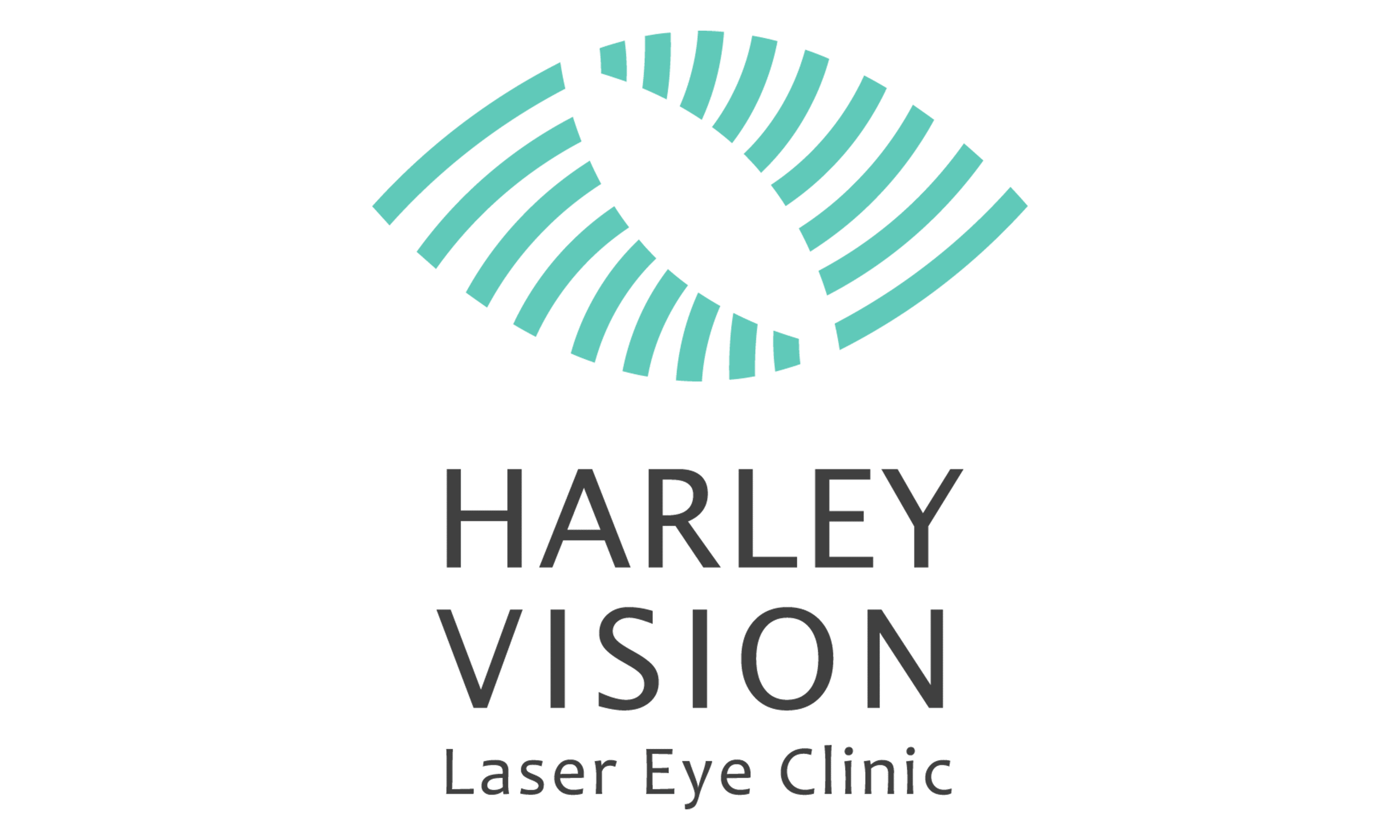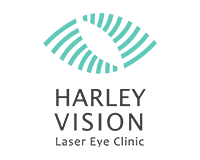Cataract Eye Surgery on Harley St.
From £1,999 per eye.
Cataract eye surgery corrects poor vision, giving you freedom from your glasses and contact lenses, so you can live your life to the fullest.
Harley Vision
4.9
Mr Mukhtar Bizrah
24 patient reviews
4.9
Mr Mukhtar Bizrah
24 patient reviews
What is Cataract?
Cataract is clouding of the natural crystalline lens inside the eye. Cataract formation usually occurs with age, and can be accelerated by conditions such as diabetes mellitus. Cataracts result in gradual worsening of vision, and can affect one eye or both. Cataracts can also result in the vision becoming ‘cloudy’.
Common complaints resulting from cataracts include seeing glare or haloes around lights (particularly at night). Most people above the age of 60 years have some degree of cataract formation, but this can range from very mild to severe. Despite being a treatable condition, cataracts are still the leading cause of blindness globally.
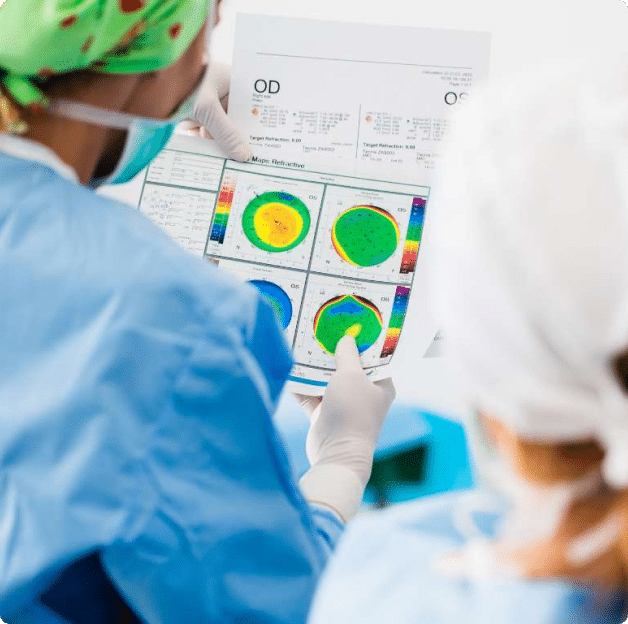
Am I Suitable For Cataract Eye Surgery?
As 85% of people who come to Harley Vision for a consultation are suitable for a procedure, it’s very likely that you will be too. Why not try using one of our suitability tools to get a quick initial indication?
We Use World Class Technology
Our expert surgeons use the same technology that led NASA to approve laser eye surgery for its astronauts. We use advanced femtosecond and excimer lasers, which are incredibly precise and accurate so that we can provide our patients with their very best results.
What is the benefit of cataract surgery at Harley Vision?
At the Harley Vision, we aim to treat all of the following during Cataract Surgery:
Cloudiness of the vision
Short-sightedness or long-sightedness
Astigmatism
At Harley Vision, cataract surgery is not simply removing cloudiness, but also giving vision as sharp as possible by treating refractive errors such as astigmatism. Treatment is tailored to the individual to facilitate the best possible vision that will suit their lifestyle requirements. It is important to bear in mind that there is no perfect solution to match all lifestyle needs. During the consultation, the surgeon will help you pick an option that is most suitable for you.
Do you use specific lens implants for cataract surgery?
WHAT WE DO
At Harley Vision, we choose the lens implant that matches your lifestyle needs. Lens implants we offer range from simple monofocal lenses to premium and toric multifocal lenses. We use the best lens implants and laser technology in the industry. These will be explained in more detail at your consultation.
The UK is one of the best possible places in the world to have the latest technology in eye surgery, because we have more laser and lens implant choices than many other countries around the world.
WHAT WE DO NOT DO
We do not have any special deals with any companies forcing us to use lasers and implants from one company. Although this means this is more expensive for us, because we do not benefit from economies of scale like many other clinics, we simply do not care. What we do care about is having the flexibility to use whatever lens implant or laser technology we think is best for the patient.
Rest assured that at Harley Vision, we will offer you what we believe is the best choice for your eyes, rather than what we ‘must’ use.
Possible Causes Leading to Cataract Surgery
Early Signs and Symptoms
In some cases, patients start to notice symptoms such as clouded, blurred or dim vision, vision difficulty at night, sensitivity to light and glare, difficultly under low light conditions, Halos around lights, frequent changes of spectacles (glasses) or contact lens prescription, yellowing of colours, dimming of colours, double vision, etc.
The symptoms of cataracts do not start overnight. Cataracts tend to result in gradual blurring of vision, and this tends to worsen over months and years.
If you are suffering with symptoms of cataracts, you can book a consultation with an ophthalmologist in London who will go through the treatment options with you.
Diagnosis
When you visit Harley Vision in London for cataract surgery, the eye surgeon will start by taking a detailed history of your symptoms, their effect on your lifestyle, and your systemic conditions like diabetes, hypertension, or any other conditions, if any.
This is followed by an assessment of your vision to test to check how far you can read letters or numbers down the chart. The visual assessment is performed on each eye, with and without your glasses. A thorough examination of the anterior (front) and posterior (back) segments of the eye is then performed to assess the health of your cornea, optic nerve, retina and grade the severity of the cataract. At Harley Vision in London, we use cutting edge state-of-the-art technology to assess the health of the eye. This includes AI based devices to choose a premium lens implant that will give you excellent vision after cataract surgery.
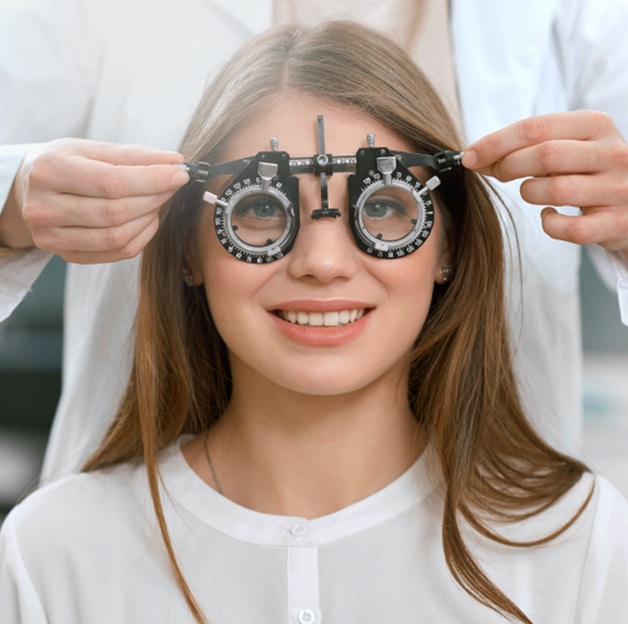
Treatment options
Treatment options may vary from one clinic to another in London, the basic process remains the same.
During your initial screening, your ophthalmologist will advise you for a change of spectacle (glasses) or contact lens prescription if you already use one.
Cataract surgery can be delayed if it is not interfering significantly with you vision or lifestyle. New glasses can improve your vision, but not fully if there is significant cataract formation. Once there is significant cataracts, then cataract surgery is the only method of recovering your vision to normal.
At our eye clinic in London, premium cataract surgery not only treats cloudy vision, but can also treat your refractive error (e.g. short-sightedness, long-sightedness, astigmatism), resulting in improved distance and near vision without glasses.
Before and after cataract surgery
Before cataract surgery, comprehensive state-of-the-art scanning of your eye will be performed at Harley Vision. This will ensure that the correct premium lens is used for your cataract surgery.
On the day of cataract surgery, the anaesthesia will be administered to the eye only, or can be combined with sedation. Rarely, patients to choose general anaesthesia for cataract surgery. On average, cataract surgery takes 10-20 minutes to complete. The duration of cataract surgery can vary depending on other conditions affecting the eye, and the type of premium lens used for cataract surgery.
After the cataract surgery, you will be given instructions on what eye drops to use, and you will go home on the same day. Follow up will be arranged in one of our eye clinics in London to ensure that you have achieved the desired visual outcome.
Benefits
A crisp vision is a first and foremost benefit that you should expect from your cataract surgery, irrespective of the eye clinic you choose in London. This will positively impact your other activities like working, reading, driving, and doing your daily activities with ease.
Not depending on others for your work will make you confident and increase your quality of life. Not just that, cataract surgery can in some cases reduce your chances of developing other sight-threatening conditions such as glaucoma. Driving or jogging with a clear lens will be much safer than with a cataractous one. You can ask the doctor about the precautions to be taken post-cataract surgery and the minor problems you may face until the condition gets normal.
At Harley Vision, London, we combine world-class surgeon expertise with cutting edge technology to give you the best possible outcome from cataract surgery. The aim of cataract surgery at Harley Vision in London is to both:
- 1. Give you clear vision that has been compromised by the cataracts
- 2. Treat refractive error such as short-sightedness (myopia), long-sightedness (hypermetropia), astigmatism and presbyopia (loss of ability to see up close that occurs with age).

How Is Cataract Eye Surgery Performed?

Step 1
The procedure begins with anaesthetic eye drops being applied, which quickly numbs the eye.

Step 2
The surgeon will remove the cataract and an artificial IOL (intraocular lens) is then inserted into the lens capsule.

Step 3
Most patients experience improved vision within a few days, though full recovery can take up to a week.
Dr. Mukhtar Bizrah
Mukhtar Bizrah is the Clinical Director of Harley Vision. He is a consultant refractive, cornea and cataract surgeon and unit training lead at the Western eye hospital, Imperial College Healthcare NHS Trust.
Mr Bizrah is multi-fellowship trained (UK & Canada) in advanced refractive, cataract and cornea surgery. He is one of the few ophthalmic surgeons in the world who is board certified in the UK, Canada and Europe:
- Fellow of the Royal College of Ophthalmologists (FRCOphth), UK
- Fellow of the Royal College of Physicians and Surgeons of Canada (FRCSC), Canada
- Fellow of the European Board of Ophthalmology (FEBO), Europe
- Certificate in Laser & Refractive surgery (CertLRS), Royal College of Ophthalmologists, UK
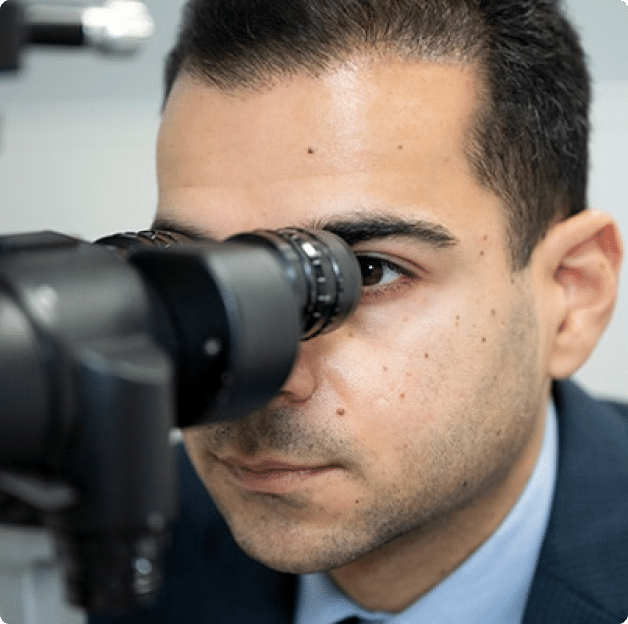
10 reasons for Harley vision
01
<span data-metadata=""><span data-buffer="">Multi-award winning, multi-fellowship trained surgeon
02
<span data-metadata=""><span data-buffer="">At our clinic, you will be seen by a consultant from the start, not the day of surgery<span data-metadata="">
03
<span data-metadata=""><span data-buffer="">Not tied to any company, we choose the best laser or implants for your eyes
04
<span data-metadata=""><span data-buffer="">State-of-the-art technology, lasers and multifocal lens implants
05
<span data-metadata=""><span data-buffer="">Our surgeons offer laser and lens based refractive surgeries, not pressuring you to a specific treatment
06
<span data-metadata=""><span data-buffer="">Honest ethical care: We do not falsely promise 20/20 vision
07
<span data-metadata=""><span data-buffer="">Utilising AI for best possible care
08
<span data-metadata=""><span data-buffer="">Believers in education, running ophthalmology courses attended from various continents
09
<span data-metadata=""><span data-buffer="">Believers in evidence-based care, our surgeons have numerous research studies
10
<span data-metadata=""><span data-buffer="">Believers in vision for all, donating …
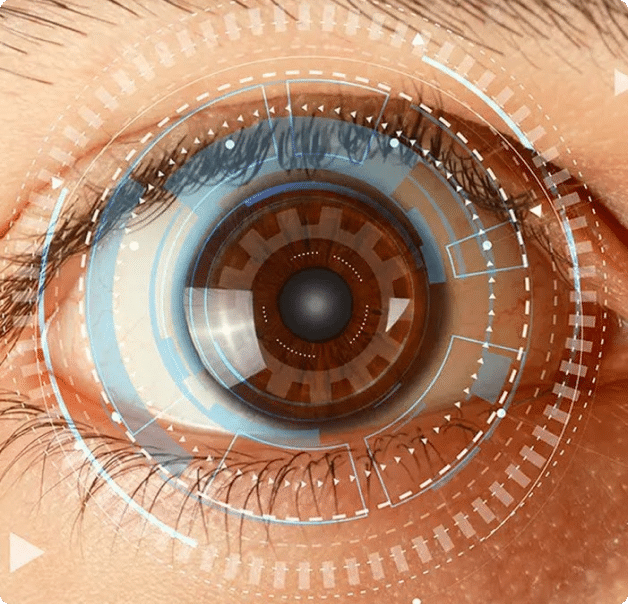
How Much Does Cataract Eye Surgery Cost?
The eyes of each person are different, and so is their Lasik eye surgery. First, we need to meet with you for a consultation so that we can figure out what your treatment needs are.
In the last few years, improvements in technology have made this truly amazing change in vision possible for almost everyone who is suitable for treatment.
It’s also important to remember that correcting your vision could save you money in the long run because you won’t have to keep buying glasses or contact lenses.
From
£1,199 / per eye
Aftercare & Recovery
Our full aftercare plan begins on the day of your Lasik eye surgery and is tailored to your specific needs. We keep an eye on your progress to make sure that your healing is going as it should.
All of our patients can also call our after-hours medical service, where an expert optometrist or surgeon can answer any questions about your vision or eye health after laser eye surgery.
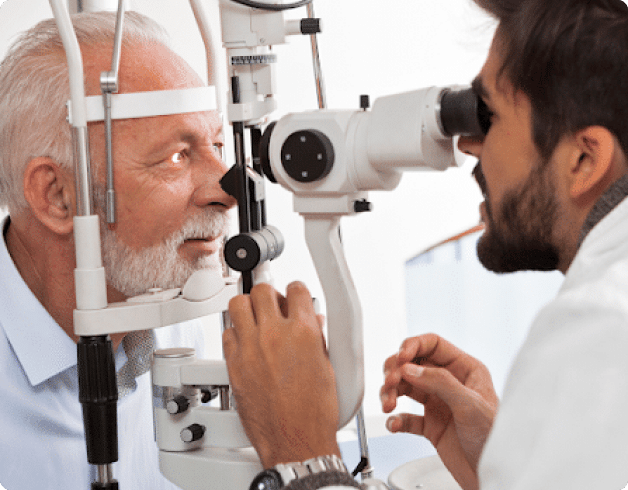
50 million people
Around the world, more than 50 million people have had laser eye surgery. At Harley Vision all consultations are done by our award winning eye doctors and surgeons completely free of charge because your Vision is Our Mission. UK laser eye surgery has a very good safety record and at Harley Vision our eye surgeons have some of the lowest complication rates in the world.
Why Choose Us?
Around the world, more than 50 million people have had laser eye surgery. At Harley Vision all consultations are done by our award winning eye doctors and surgeons completely free of charge because your Vision is Our Mission. UK laser eye surgery has a very good safety record and at Harley Vision our eye surgeons have some of the lowest complication rates in the world.
<span data-metadata=""><span data-buffer="">Frequent asked questions (FAQs)
NICE guidelines (adopted by Royal College of Ophthalmologists) state: ‘having a PCR rate of approximately 2% or less is widely regarded as an indicator of surgical competence’. (NICE cataract surgery guidelines 2017).
Mukhtar Bizrah has extensive experience in complex cataract surgery, as well as cataract surgery combined with corneal transplantation. Despite managing complex cases, his posterior capsule rupture (PCR) rate is 0.6%, which is one of the lowest nationally.
Cataract surgery enjoys a high safety profile. Risk of needing another operation is 1 in 100, and risk of permanent loss of vision (due to severe infection or bleeding) is approximately 1 in 1000. About 20% of patients may develop clouding behind the implanted lens, which may require treatment with laser. The laser treatment usually takes a few minutes and recurrence of the problem is very rare.
You vision will depend on the type of artificial lens that you choose to be implanted inside the eye during the surgery. Options include:
The natural lens of your eye, which has become clouded by the cataract, is replaced with an artificial lens called an intraocular lens (IOL) during cataract surgery. IOLs come in different types and materials, each having their own advantages and potential disadvantages. Here are the major types:
- Monofocal IOLs: These provide high-quality vision at a single focal point (e.g. distance OR near, not both). For example, if you monofocal lenses are implanted with the aim of giving you good distance vision, then reading glasses are typically needed for intermediate and near vision, such as for wearing eye make up, using a computer or mobile device, looking at your car’s dashboard, reading a book or restaurant menu. The cost of monofocal lenses is usually covered by insurance companies, and these are the most commonly used lenses in the NHS.
- Premium Monofocal IOLs: These are designed to give excellent distance vision, whilst enhancing vision for intermediate activities (e.g. computer use). You are likely to need glasses to read small print at a short distance (e.g. reading a newspaper).
- Extended Depth of Focus IOLs: These lenses provide a continuous range of high-quality vision for far and intermediate distances, and for some people, near distances as well. They usually cause less glare and halos than multifocal IOLs.
- Multifocal IOLs: These lenses provide vision at multiple distances, reducing dependency on glasses. However, they tend to cause more unwanted visual symptoms such as glare/halos/starbursts than standard monofocal lenses. Most people adapt to these symptoms with time, but this is not guaranteed.
- Accommodative IOLs: These lenses can shift from near to far vision in response to movements of the ciliary muscles in your eye, somewhat like the natural lens does. This type of lens flexes to provide focus at multiple distances.
- Toric IOLs: These lenses are designed for people with astigmatism. They correct the irregular corneal shape caused by astigmatism, providing clearer overall vision. Most of the IOLs listed above (e.g. multifocals), have toric versions which reduce astigmatism.
- Monovision: This means implanting a monofocal lens to enable distance vision in one eye, and a monofocal lens for near or intermediate vision in the other eye. While the idea sounds complex, a surprising number of patients opt for this and are pleased with the outcomes.
Choice of the lens is based around your preference and lifestyle, as well as the presence of other eye conditions. The above provides a blueprint, and more detailed discussion with an experienced surgeon will help you make the decision that is right for you.
At Harley Vision, we utilise 3 key elements in our management of patients:
- Patient choice
- Clinical and surgical expertise
- Evidence-based treatments and artificial intelligence (AI)
Large clinical trials have not shown laser-assisted cataract/RLE surgery to improve patient outcomes nor safety of surgery. At Harley Vision, we offer the option to have femtolaser-assisted refractive lens exchange. We do not routinely encourage it because we cannot ethically justify the increased cost to you.
Previous laser eye surgery does not affect your ability to have cataract surgery. The main challenge in such cases is choosing the correct lens to be implanted inside the eye. Previous laser eye surgery affects accuracy of eye measurements, which in turn affects choice of lens to be implanted inside the eye.
Mukhtar Bizrah trained in one of the highest volume cataract surgery clinics in North America for patients with previous laser eye surgery (e.g. LASIK or PRK). Using his vast experience in this field, he is able to optimise visual outcomes and minimise risks of unexpected surgical results.
Yes, at the Harley Vision, cataract surgery is frequently performed on both eyes on the same day.
Cataract surgery, whether performed privately or in the NHS, results in fantastic visual outcomes. Dr Mukhtar Bizrah operates on patients with standard and complex cataracts in private and Imperial College Hospital NHS Trusts.
The main difference between cataract surgery in the NHS and private sector is the use of premium intraocular lenses privately. These multifocal and toric lenses enable patients to see well for more distances (e.g., distance, intermediate, and near) rather than one distance only. i.e., the difference between spectacles that correct distance only and varifocal or bifocal spectacles that accurate vision for a range of lengths. Premium intraocular lenses give patients more independence from spectacles. There has been a massive leap in premium intraocular lenses technology over the last five years, resulting in better vision and less undesirable symptoms.
There is enormous variability in the quality and price of the different multifocal intraocular lenses. At Harley Vision in London, we use some of the most advanced intraocular lenses in the world to correct vision during cataract surgery regardless of the cost of these lenses. We are not tied to one company for cost purposes unlike many other clinics, meaning we have the freedom to choose any lens implant from any company that we think is best for your eyes. Don’t hesitate to contact the Harley Vision in London for more information about the latest intraocular lenses used for cataract surgery and refractive lens exchange.
Cataract surgery is not painful because of the anaesthesia administered before the surgery. The surgery can be done under local anaesthetic (most common), sedation, or rarely general anaesthesia. After the cataract surgery, it is common to feel occasional mild discomfort or foreign body sensation. This resolves with time. At the Harley Vision in London, the keyhole incisions (usually 2.2mm) and advanced technology mean that most patients do not feel any pain and recover remarkably fast. You can expect to get discharged on the same day. At Harley Vision, we make the whole cataract surgery process painless and hassle-free for you.
It is advisable not to drive on the day of your cataract surgery. It’s better to ask someone to pick you up after cataract surgery and drive you home safely. The vision usually improves within 24 hours of cataract surgery. While legally, nothing is stopping you from moving as soon as your vision is within legal limits for driving, it is advisable to give yourself time to adjust to your change in vision.
You can walk immediately after the surgery. It is advised to refrain from any heavy exercise for at least a week after the cataract surgery. If you have had a premium toric intraocular lens implanted, it is advisable to avoid heavy exercise for 3-4 weeks to avoid rotation of the lens. A toric intraocular lens is aligned at a particular axis (0-360 degrees) to correct astigmatism and can result in marvellous vision after cataract surgery. However, even mild rotation of an intraocular lens can lead to a suboptimal visual correction.
Cataract surgery is a microsurgical procedure that involves making small keyhole incisions in the eye. The cloudy lens is then removed and replaced with an artificial lens, known as an intraocular lens (IOL).
Modern day cataract surgery is typically performed using a high-frequency ultrasound device that breaks up the cloudy lens into small pieces, a process known as phacoemulsification. These pieces are then gently suctioned out of the eye. The back membrane of the lens (the posterior capsule) is left in place to serve as a place for the IOL to rest.
Once the cataract has been removed, the IOL is folded and inserted into the empty capsule. Once in the eye, the folded IOL unfolds, filling the empty capsule. The incision is then closed, usually requiring no stitches as it seals itself due to the eye’s natural pressure.
The procedure is typically performed under local anaesthesia and on an outpatient basis, which means you can go home the same day. The procedure is usually pain-free. In some cases, sedation or general anaesthesia (rare) may be required. The surgery usually takes less than an hour, but you should plan to spend 2-3 hours at the surgical facility to allow time for pre-surgery preparation and post-surgery recovery.
Cataract surgery is the most commonly performed operation in the UK and around the world. Cataract surgery is a day case procedure. It is takes 10-20 minutes when performed routinely. Thanks to advanced technologies in London, Cataract surgery has become a simple procedure, unlike it was 20-30 years ago. It is painless and takes a very short time. You can expect to get discharged and return home the same day without any major undesirable symptoms.
Irrespective of the clinic you choose in London, routine cataract surgery should not take more than 15-30 minutes. However, the whole journey can take 2-4 hours, including getting the preoperative care, getting reading for surgery, post-operative care. administering drops, etc. After cataract surgery, you can usually leave the hospital within 30 mins or so.
If a cataract is left untreated, your symptoms will worsen, and it can result in severe vision loss. Often a swollen cataract may block your aqueous pathway leading to a surge in the intraocular pressure which will need emergency treatment to subside.
Delaying cataract surgery until it is very hard and dense can make the surgery more complex, increasing risk of complications. It is best to get your cataracts operated on at the right time to minimise risk of such complications.
Your vision will be blurry right after the surgery, and it’s normal to experience such post-operation complications. Within 24 hours, you will start noticing improvements in your vision. At first, the change might seem a bit raw to you. Normal light will feel like too much, and colours will look too bright. But it is because of living with a cataractous lens for a long time. You will get used to the new clear lens in a few weeks. You can resume your normal routine like driving and exercising within a days to weeks, depending on your visual recovery.
Cataracts are usually age-related issues and progress over a while. A multitude of factors affect ageing of the natural lens of the eye leading to cataract formation, including ultraviolet light exposure, smoking, poor nutrition, diabetes, and severe dehydration.
Chronic conditions of the eye may result in cataract formation, such as recurring eye inflammation (uveitis), chronic use of steroids. Injuries, such as trauma (physical injury), radiation or chemical burns can result in accelerated cataract formation.
Cataracts be also be congenital (hereditary), resulting in cataract formation in childhood or early adulthood. To identify the exact reason that may now require cataract surgery, get in touch with an expert cataract surgeon in London at the Harley Vision.
Monovision, also known as blended vision, is a technique typically used to address presbyopia, the age-related condition where the eye has difficulty focusing on near objects.
The monovision approach involves correcting one eye (typically the dominant one, but not necessarily) for distance vision, and the other eye for near vision. This allows the individual to see clearly at both distances, hence minimising the need for bifocals or reading glasses. The brain usually adapts to this difference and learns to choose the eye that provides the best focus for a particular distance, thereby “blending” the two images into one clear picture in the mind. This process is called neuro-adaptation, and can take up to several months.
Monovision has been implemented successfully in contact lens wear, laser eye surgery, lens replacement surgery (also known as refractive lens exchange) and cataract surgery.
It is important to note that monovision may not be suitable for everyone. Some individuals might have trouble adapting to the difference in prescription between their two eyes, leading to issues with depth perception, visual discomfort or unwanted visual symptoms (e.g. glare). If you decide to have monovision, and your eyes do not adapt, you may need to undergo further treatment.
Useful Links
Locations
Harley Vision,
Harley Vision,
Harley Vision,
Harley Vision,
Contact Us
Lines open: Mon to Sun 9am – 9pm
Out of hours service available for urgent cases
© 2022 Harley Vision, All Rights Reserved.
Harley Vision,
Harley Vision, Imperial Western Eye Hospital,
Harley Vision, King Edwards Hospital,
Harley Vision,
Harley Vision, St John & St Elizabeth Hospital
Harley Vision, Tunbridge wells eye centre, surgery in The Sight Centre,
Harley Vision, The McIndoe Centre,
Harley Vision, Spire Gatwick Park Hospital,
Lines open: Mon to Sun 9am – 9pm
Out of hours service available for urgent cases
© 2023 Harley Vision, All Rights Reserved.
Harley Vision,
Imperial College Private, Charing Cross Hospital, Fulham Palace Road, London W6 8RF
